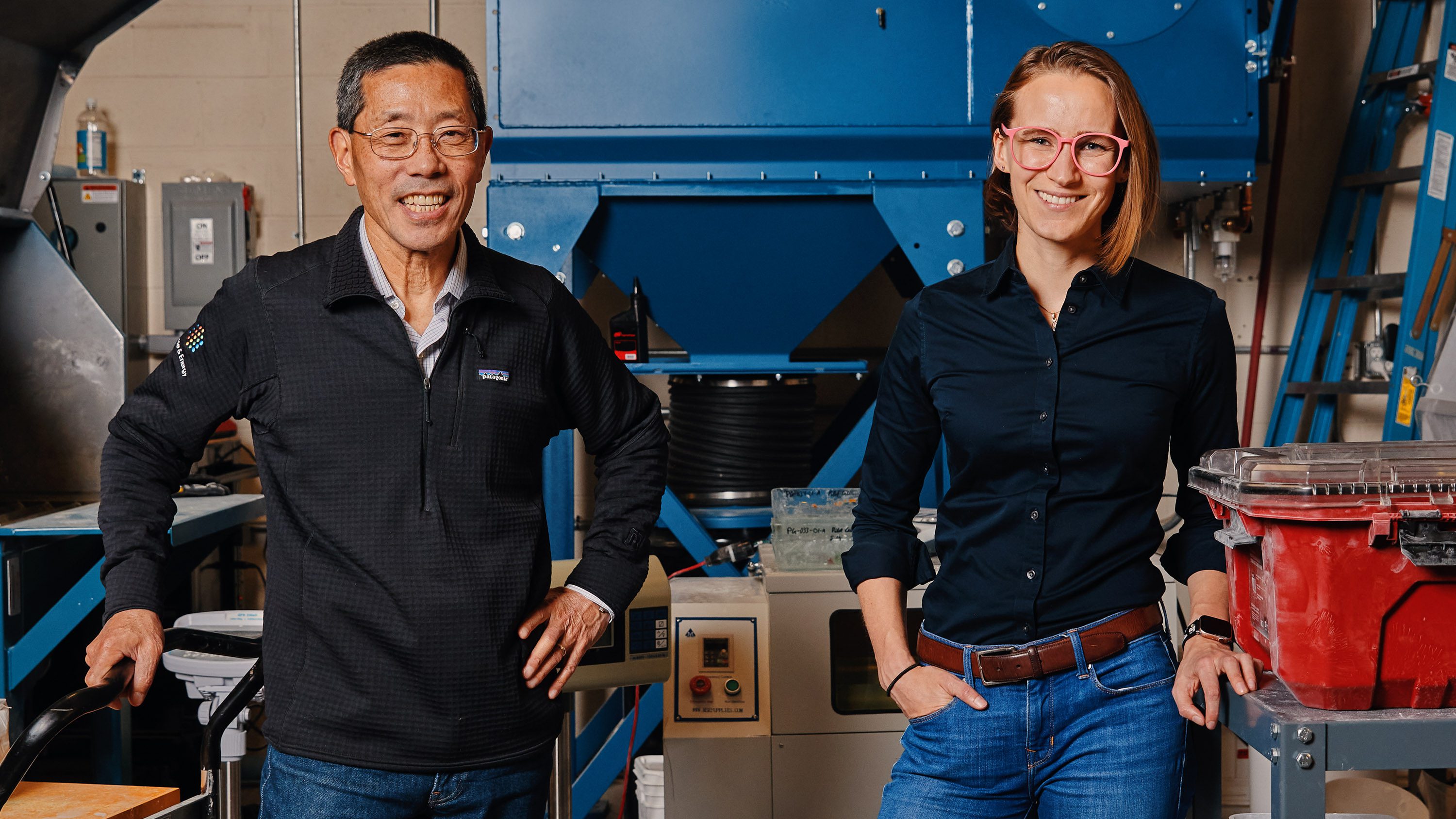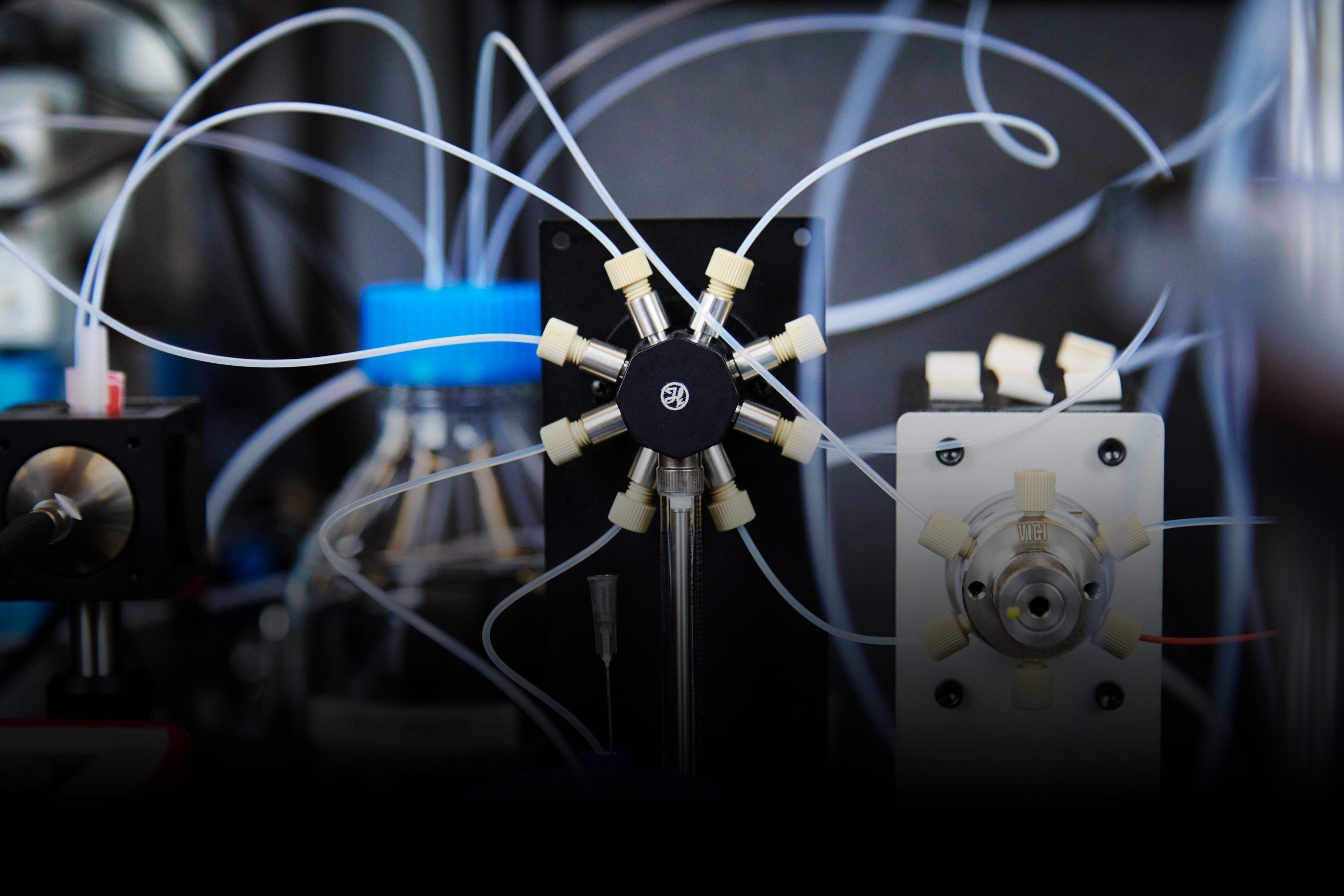The Download: satellites’ climate impact, and OpenAI’s frantic release schedule
This is today’s edition of The Download, our weekday newsletter that provides a daily dose of what’s going on in the world of technology.
The world’s next big environmental problem could come from space
In September, a unique chase took place in the skies above Easter Island. From a rented jet, a team of researchers captured a satellite’s last moments as it fell out of space and blazed into ash across the sky, using cameras and scientific equipment. Their hope was to gather priceless insights into the physical and chemical processes that occur when satellites burn up as they fall to Earth at the end of their missions.
This kind of study is growing more urgent. The number of satellites in the sky is rapidly rising—with a tenfold increase forecast by the end of the decade. Letting these satellites burn up in the atmosphere at the end of their lives helps keep the quantity of space junk to a minimum. But doing so deposits satellite ash in the Earth’s atmosphere. This metallic ash could potentially alter the climate, and we don’t yet know how serious the problem is likely to be. Read the full story.
—Tereza Pultarova
OpenAI’s “12 days of shipmas” tell us a lot about the AI arms race
Last week, OpenAI announced what it calls the 12 days of OpenAI, or 12 days of shipmas. On December 4, CEO Sam Altman took to X to announce that the company would be “doing 12 days of openai. each weekday, we will have a livestream with a launch or demo, some big ones and some stocking stuffers.”
The company will livestream about new products every morning for 12 business days in a row during December. It’s an impressive-sounding (and media-savvy) schedule, to be sure. But it also speaks to how tight the race between the AI bigs has become, and also how much OpenAI is scrambling to build more revenue. Read the full story.
—Mat Honan
This story originally appeared in The Debrief with Mat Honan, our weekly take on what’s really going on behind the biggest tech headlines. The story is subscriber-only so nab a subscription too, if you haven’t already! Or you can sign up to the newsletter for free to get the next edition in your inbox on Friday.
The must-reads
I’ve combed the internet to find you today’s most fun/important/scary/fascinating stories about technology.
1 The USDA is launching a national program to test milk for bird flu
A full nine months after the current outbreak was first detected in dairy cows. (STAT)
+ The risk of a bird flu pandemic is rising. (MIT Technology Review)
2 Here’s what sets OpenAI’s new models apart
They’re shifting from predicting to reasoning, which could be a huge deal. (The Atlantic $)
+ Regardless of whether capabilities are slowing, AI’s impact is only poised to grow. (Vox)
+ It may be comforting to dismiss AI as hype—but it misses the point. (Platformer)
3 A federal appeals court has upheld the US TikTok ban
But what happens next is anyone’s guess. (WSJ $)
+ Whether TikTok is banned or not, the actions against it have had a big impact. (MIT Technology Review)
4 Top internet sleuths are sitting out the hunt for the UnitedHealthcare CEO killer
In fact, some are even criticizing people who are trying to help. (NBC)
+ Why so many Americans are at best indifferent to this particular murder. (New Yorker $)
5 Schools are attempting to stop teens self-harming before they even try
The AI tools they’re adopting could be doing far more damage than help, though. (NYT $)
6 China is building its own Starlink system
The Qianfan constellation could eventually grow to nearly 14,000 satellites. (The Economist $)
+ The end of the ISS will usher in a more commercialized future in space. (The Verge)
7 This was an exciting year for superconductors
Superconductivity—the flow of electric current with no resistance—was discovered in three new materials. (Quanta $)
8 Meet the world’s least productive programmers
It seems a small minority of disillusioned ‘ghost engineers’ do pretty much no work at all. (WP $)
9 Why people are turning their backs on dating apps
There’s a large degree of fatigue, and a feeling that they’re somehow detached from reality. (The Guardian)
10 Fake snacks are racking up millions of views on Instagram 
There’s even a word for this trend: snackfishing. (Wired $)
Quote of the day
“I think Twitter and now X is like a crack addiction for him, though. He is clearly chasing a particular hit all the time and he has ended up self-radicalising himself with the platform he has purchased.”
—A former Twitter employee in London tells The Guardian how Elon Musk has changed since he purchased the platform.
The big story
How electricity could help tackle a surprising climate villain



January 2024
Cement is used to build everything from roads and buildings to dams and basement floors. But it’s also a climate threat. Cement production accounts for more than 7% of global carbon dioxide emissions—more than sectors like aviation, shipping, or landfills.
One solution to this climate catastrophe might be coursing through the pipes at Sublime Systems. The startup is developing an entirely new way to make cement. Instead of heating crushed-up rocks in lava-hot kilns, Sublime’s technology zaps them in water with electricity, kicking off chemical reactions that form the main ingredients in its cement.
But it faces huge challenges: competing with established industry players, and persuading builders to use its materials in the first place. Read the full story.
—Casey Crownhart
We can still have nice things
A place for comfort, fun and distraction to brighten up your day. (Got any ideas? Drop me a line or tweet ’em at me.)
+ Who will be the Lord of Misrule in your household this Christmas?
+ People’s Wikipedia browsing data always makes for interesting reading.
+ Wait, so we’ve been mispronouncing these words all along? (Apart from espresso, c’mon)
+ The Muppet Christmas Carol might just be the greatest festive film.















